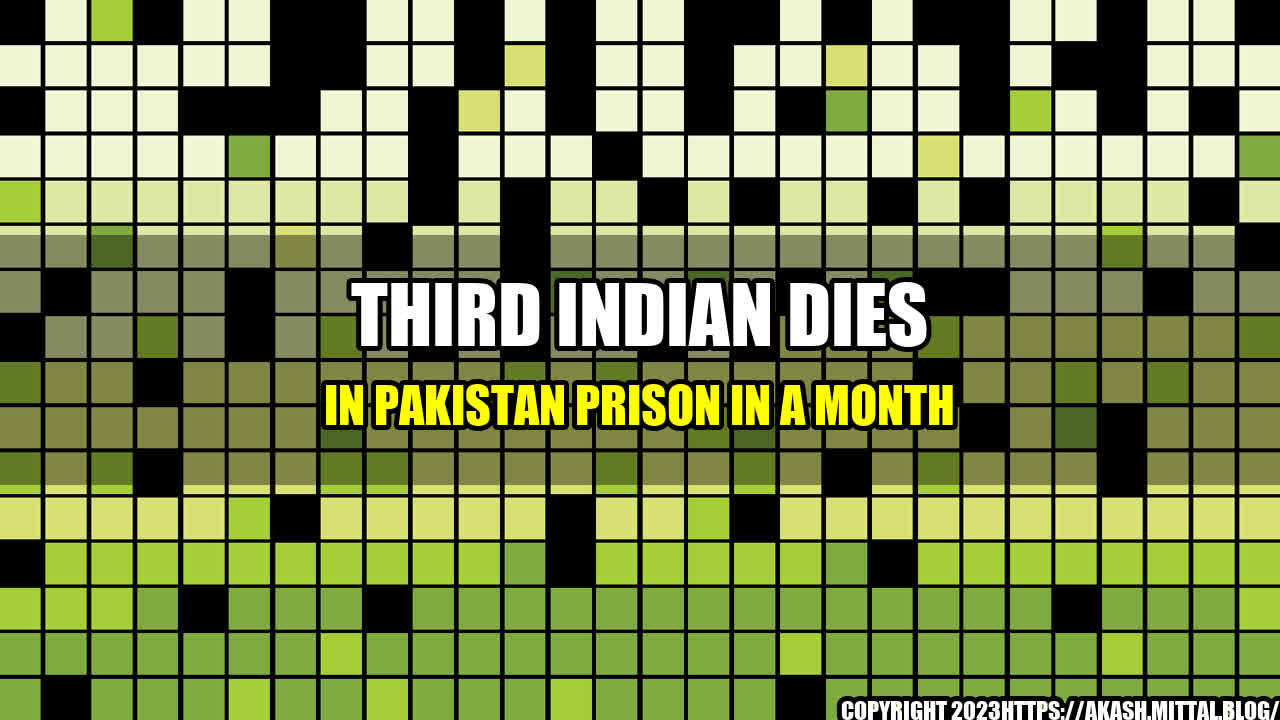It's a story that has been repeating itself all too often. An Indian citizen is jailed in Pakistan, accused of espionage or other crimes, and is left to languish in inhumane conditions. In some cases, they never make it out alive.
The recent death of a third Indian citizen in a Pakistani prison within a month has once again raised questions about the treatment of prisoners across the border. Jaspal Singh, a 73-year-old who had been arrested on charges of illegal border crossing, died of a heart attack in a Lahore jail on Sunday. His family had pleaded with the Indian government to intervene, but to no avail.
The case of Jaspal Singh is just one of many such incidents that have come to light in recent years. According to a report by the Indian Ministry of External Affairs, there are currently over 250 Indian prisoners in Pakistani jails, many of them accused of espionage or terrorism-related offenses.
The Inhumane Conditions of Pakistani Prisons
For those who have been lucky enough to be released, the stories they tell are harrowing. They describe overcrowded cells where disease is rampant and there is little access to clean water or medical care. Torture and abuse are said to be common, and prisoners are often denied access to legal counsel or due process.
Take the case of Hamid Nehal Ansari, for example. The 33-year-old Mumbai resident had been jailed in Pakistan for six years on charges of espionage. He was finally released in December 2018, but not before he had suffered severe beatings from prison authorities and had faced constant threats to his life from fellow inmates.
Such stories are not uncommon. Indian prisoners in Pakistani jails are often seen as pawns in a larger geopolitical game, with little regard for their basic human rights.
The Plight of the Families Left Behind
But the impact of this ongoing crisis goes beyond just the prisoners themselves. Their families are often left in a state of despair, with little recourse for appeal or intervention.
Take the case of Kulbhushan Jadhav, a former Indian Navy officer who has been languishing in a Pakistani prison since 2016. His family has been fighting an uphill battle to secure his release, with little success. They have not been allowed to meet with him in person, and have had to resort to writing letters to the Pakistani government in the hopes of securing his freedom.
It is a sad reality that the fate of these prisoners is often tied up in larger political issues between India and Pakistan. But as we focus on those larger issues, we must not forget the human toll that is being exacted on both sides.
The Need for Urgent Action
The recent spate of deaths in Pakistani prisons should serve as a wake-up call to both governments. There is an urgent need to improve the conditions for prisoners, and to ensure that they are being treated humanely.
While the Indian government has been pushing for the release of its citizens, much more needs to be done. Both India and Pakistan must work together to address this issue, and to find a way to ensure that such tragedies do not repeat themselves in the future.
It is also important that we recognize the plight of the families involved, and do our best to support them in their time of need. This may involve lobbying governments, providing financial assistance, or simply offering words of comfort and solidarity.
In Conclusion
The ongoing crisis involving Indian prisoners in Pakistani jails is one that should concern us all. It is a reminder of the fragility of human rights in the face of politics and power struggles.
As we look to the future, we must work together to find a way to ensure that justice is served, and that those who are imprisoned are treated with the dignity and respect that they deserve. Anything less would be a betrayal of our shared humanity.

Curated by Team Akash.Mittal.Blog
Share on Twitter Share on LinkedIn